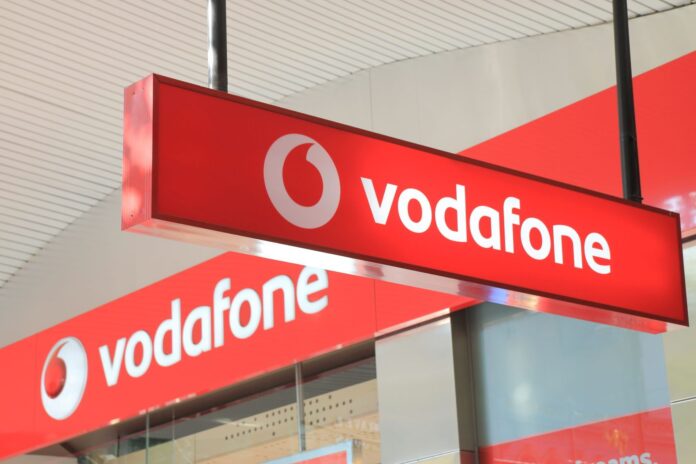British telecoms group Vodafone finally completes €18.4 billion ($21.8bn) monster deal for Liberty Global cable and broadband assets in Germany and eastern Europe to complete its decade-long journey from mobile-only carrier to the region’s multi-play champ.
Vodafone has struck a deal to purchase Liberty Global’s operations in Germany and Eastern Europe for €18.4 billion ($21.8bn). If the transaction gains approval, it will make Vodafone the largest operator in Europe by turnover and market capitalization, leapfrogging Germany’s Deutsche Telekom.
It will also make the British telecoms group, a mobile-only carrier until a decade ago, a convergence player to be reckoned with, and marks something of a retreat for billionaire Liberty Global owner John Malone in Europe.
The deal, which also includes Liberty Global’s operations in the Czech Republic, Hungary and Romania, will establish Vodafone as the leading provide of high speed broadband and cable services in the region, with 54 million customers, and a network that reaches 110 million homes and businesses.
Its acquisition of Unitymedia’s non-overlapping regional operations from Liberty Global will establish a strong second national provider of digital infrastructure in the German market, the company said. Its German expansion will hand it the scale and breadth of digital services to “accelerate the German government’s digital ambitions”.
It expects to connect 25 million German homes, or 62 per cent of all German households, to Gigabit broadband by 2022.
Meanwhile, the deal covers the purchases of cable television and broadband provider UPC from Liberty Global in the Czech Republic, Hungary and Romania; UPC is the leading cable provider in the Czech Republic and Hungary, and second in Romania, with 1.3 million, 2.3 million and 2.4 million subscribers, respectively, and sales of $202 million, $308 million and $182 million.
In these markets, the combined businesses, including Vodafone’s own mobile operations in each market, will reach over 6.4 million homes, or 39 per cent of all households, and serve 15.8 million mobile, 1.8 million broadband and 2.1 million TV customers.
Vodafone Group chief executive Vittorio Colao said: “This transaction will create the first truly converged pan-European champion of competition. It represents a step change in Europe’s transition to a Gigabit Society and a transformative combination that will generate significant value for shareholders.
“We are committed to accelerating and deepening investment in next generation mobile and fixed networks, building on Vodafone’s track record of ensuring that customers benefit from the choice of a strong and sustainable challenger to dominant incumbent operators.”
Liberty Global said it will remain Europe’s leading cable television and broadband provider after the deal completes. Its operations in the United Kingdom, Ireland, Belgium, Switzerland, Poland and Slovakia reach 24 million homes, account for 26 million video, broadband and fixed-line subscribers. Liberty Global also owns a 50 per cent stake in VodafoneZiggo, in the Netherlands.
Liberty Global chief executive Mike Fries commented: “We have a rich history of successfully developing and reshaping our business to drive innovation, advance customer services and create significant value for shareholders. This is one of those moments.”
The transaction values the four businesses in the transaction at a double digit OCF multiple, and will deliver €10.6 billion ($12.7 billion) of estimated cash proceeds to Liberty Global. The company will generate six times its original investment in the sale of its Germany business, it said.
But Fries suggested also European market’s are crying out for consolidation and competition. “Now more than ever, Europe needs strong competition from scaled national challengers willing and able to invest in next-generation wireless, video and broadband services,” he said.
Deutsche Telekom controls over half the broadband market in Germany, he pointed out – more than Vodafone and Liberty Global combined. “As a result, innovation and investment lag other countries in Europe, impacting customer service, next-generation product deployment and broadband speeds,” said Fries.
“It’s time to alter market dynamics by unleashing greater investment and competition.”
Vodafone reckons it will save around €535 million per year in cost and capital expenditure by combing the businesses. It will also bring together leading talent in the mobile and cable sectors, it said, and promised staff the change to be involved in the integration in market, and across the group.
The transaction, subject to regulatory approval from the European Commission, is expected to be completed in the middle of 2019.
A merger of Vodafone and Liberty Global in Europe has been on the cards; Vodafone said in February it was interested in Liberty Global’s “overlapping continental European assets”, and has been in informal discussions since at least 2016.
In June 2015, Vodafone called off “discussions…regarding a possible exchange of selected assets between the two companies.” Vodafone, in a statement, said, “There is no certainty that any transaction will be agreed, nor as to terms, timing or form of any transaction.” A merger is “not in discussion.”
Vodafone operates in Europe, Africa, the Middle East and the Asia Pacific region; it provides voice, data and fixed telecommunications services. Liberty Global, based in Denver, Colorado, operates in 12 European countries with brands Virgin Media, Unitymedia, Telenet and UPC.

